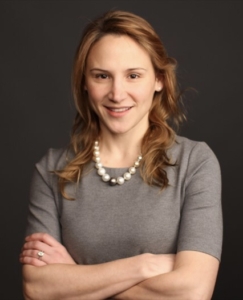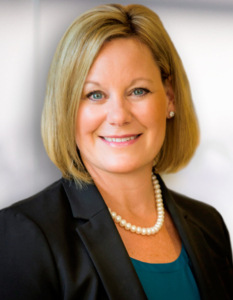 By Nicki Gilmour Executive Coach and Organizational Psychologist
By Nicki Gilmour Executive Coach and Organizational Psychologist
What happens when someone tries to discredit your work or disqualify you as a contender for a job?
Not just in politics, but in the workplace too. It is hard to believe that we still have to talk about this matter, but its still lurking. Whether it is overt sexism, a micro-aggression or even worse, the impact on the person on the receiving end is real. In the societal context, women ( and other minorities) are not believed and the benefit of the doubt usually goes to the perpetrator due to their status and biological sex/race/orientation (i.e. legacy dominant position that people do not like to challenge their implicit authority). In a work context, it means less pay, lost promotions and general unnecessary emotional stress. This is the stuff that causes a drag on individual/ team and firm performance and no amount of words about diversity from the CEO or drinks in the women’s network will fix the heart of what diversity work is; power and who gets it to have it , keep it and be believed.
Often people with issues (this is the kindest version I can print) will try to discredit you as a person and they start with your social identity, which means your grouping characteristics such as which gender you are, which ethnicity you are, and which orientation you are. Even if you personally don’t feel massive affiliation to these categories because it can be a shock to people with no intersectionality that you too could be just trying to live your life as a human and do your work without considering yourself (insert what you are here: a woman/black/gay etc).
Remember, it is often about you according to them and their stereotypical notions of who you are and absolutely nothing to do with who you actually are and what you are actually capable of. Equally, the people who i am referring to who feel like they are a threatened species, often benefit from their sex, skin color via positive stereotyping ( someone once said, its not a glass ceiling, but a thick layer of men). It is worth noting that anyone can do it even if they are a woman themselves because internalized misogyny and desire to protect traditional power structures have never been so obvious than this moment in history. But, whatever other people’s paradigms are, remedial attitudes or baggage, it should not have to be at your expense.
Why is this career advice? It is something that you need to be aware of because unfortunately one day you might stumble up against a less than evolved individual who will directly or indirectly try to lessen your credibility or devalue your work based on nothing more than your social identity.
How this plays out is that they take a shot at you based on their perception of their superiority and appropriateness regarding legacy positions for women, people of color and LGBT people. For example, at a recent social gathering, a fellow who had previously said offhand comments about women at work and LGBT people, decided to directly spit out a challenge starting the question with “who?” when the who was very obvious so it was not actually a question, it was a micro-aggression against a gay family structure.
Furthermore, bias is regularly disguised as ‘values’ because if you look at how values are formed, it is easy to see that constructs come from past norms, socio-conditioning and current cultural messaging. What did their granny tell them when they were nine? Chances are, they are operating heavily on familiar programming completely unaware that they have inherited things that they might not even truly believe if examined.
So, what do you do if you find yourself facing a person who is intentionally trying to devalue you.
There are strategies to pursue and which road to take depends on three things:
1. The overall systemic environment.
Where is the whole group at regarding their own ability to honestly digest how individual behaviors impact ongoing norms and actual humans in the group? The denial levels for untoward behavior in the workplace or socially are reducing as we have seen this year with sexual harassment. But, overall the ability to deny wrongdoing on micro-aggressions are still high. Look at how tolerant of bad behavior is the manager of your team? What flies? What are the group norms?
This is workplace culture and crucial to your next move when bringing up what happened. Will you be believed? The worst thing is not being believed or being told your experience couldn’t be true or is somehow invalid. Will you be shushed as excuses from you are wrong /you misunderstood them fly from people who are supposed to listen to such things? (HR , leaders, mentors, friends). Take the temperature as your truth is your truth, but group theory (Bion) suggests the group will protect the legacy structures, unless there are reasons not to.
2. The standing of the individual and their power based on them as an individual but also the power and authority assigned to them due to their social identity which adds benefit of the doubt privilege. Extreme cases are Harvey Weinstein and Bill Cosby- they thought they were untouchable due to the social currency. But, everyday bias and derogatory stuff is what we are talking about here, so relay the transgression to people who have mental complexity and can hold two conflicting realities in their head at the same time. That is to say, they can experience that this guy is great with them but bad to you as simultaneously true versions of reality and use their one subjective personal data point as an objective truth.
If no mental complexity is there ( as defined by Kegan, the Harvard development psychologist by the way, not just being rude here in saying they are not advanced), you will risk the high denial element again as these folks might have high IQ and make lots of money but are completely remedial on EQ, SQ and connecting the dots and you might as well be arguing with a small child.
This can be a depressing piece of work as there are many people who are capable but just have never had to do any real joining of cognitive, emotional and psychological processes because they can just stay in their ignorance as they have had no direct experience of what it means to be in the non dominant group and intersectionality doesn’t touch them. Also congruence is comfortable for everyone so its not their fault how they got there but it is their responsibility to figure out how to develop knowing that the world is full of many different types of people who historically didn’t have any power – see Kegan and Lahey again on the socialized mind in Immunity to Change. There are still so many men and women who cant help but protect the status quo for so many reasons. If you want to see this in action, participate in a contained social experiment- go to an AK Rice Group Relations conference on Power and Authority!
3. The third factor is your personality? Are you a confronter or a keep the peace person? You need to know your own comfort zones and abilities and what you are going to be able to take emotionally as revealing bad people can take strength, energy and there are stakes at play sometimes ( the bully/bigot knows that the stakes are low or them and high for you).
So, once you know the above, you can work out what the best course of action is. Sometimes it is about doing something and sometimes is it is not.
For extra reading, I recommend Leaders Guide to Leveraging Diversity Capabilities or leave this book on your boss’s desk to prime the pump for people who want to make things better so you build a cultural coalition of people who know how to deal with everyday problem children at work. I quote Maya Angelou in high regard, because “when you know better, you do better.”
If you are dealing with difficult people or a culture that has systemic diversity issues in it, I would be happy to work with you as your executive coach. Contact me on 646 6882318 or nicki@theglasshammer.com for an exploratory chat.








